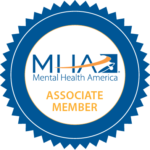I was in a meeting today in Washington, DC sharing the podium with a wonderful physician from Deloitte’s healthcare group. One of his observations was that many healthcare providers are moving away from becoming Medicare-approved Accountable Care Organizations (ACOs) because the potential rewards pale in comparison to the cost and complexity of playing in the Medicare ACO game. He predicted that we will continue to move toward “accountable care” in the United States, but it may not take the form of a Medicare ACO.
Resources
Community Care Organizations (ACOs for the rest of us)
Moving From the Clinic to the Community
Together with the noisiness of the Greatest Recession, governmental deficits, and national health reform, a quiet and little-noticed revolution is taking place in our notions about the role of one’s community in health and well-being.
New Health Age: The Future of Health Care in America
We live in a transformational time in the history of medicine and health care. The 21st century will be a time of dramatic change, incredible breakthroughs, and totally altered thinking about health, medicine, and health care delivery. This book sets forth what health care and medicine will look like in the years ahead. It takes a look at history, the transformational changes going on today, the health of Americans, the nine dynamic flows that are shaping health care in the United States, and definitions and descriptions of the new institutions of the future landscape of health care and medicine.
Peer Services Explosion: The Time is Now!
Terrible fiscal times create the political will to implement big changes, including some long overdue ones that involve changing how and where we serve people with psychiatric disabilities.
Leadership Skills for Health Reform
Tomorrow’s Success Depends on Our Greatest Assets: Our Workers
Here is the dilemma: health care, predominantly a service industry, today takes up 16 percent (Organization for Economic Cooperation and Development, 2010) of our GDP and we can’t really expand that percentage much without hurting our international competitiveness – or so we are told and believe. We are, therefore, in a conundrum.
Improving the Quality of Health Care for Mental Health and Substance-Use Conditions: Quality Chasm Series
Millions of Americans today receive health care for mental or substance-use problems and illnesses. These conditions are the leading cause of combined disability and death of women and the second highest of men. Effective treatments exist and continually improve. However, deficiencies in care delivery prevent many from receiving appropriate treatments. That situation has serious consequences. A previous IOM report, Crossing the Quality Chasm: A New Health System for the 21st Century (2001), put forth a strategy for improving health care overall. However, health care for mental and substance-use conditions has a number of distinctive characteristics. This report examines those differences, finds that the Quality Chasm framework is applicable to health care for mental and substance-use conditions, and describes a multifaceted and comprehensive strategy to do so. The strategy addresses issues pertaining to health care for both mental and substance-use conditions and the essential role that health care for both plays in improving overall health and health care. In doing so it details the actions required to achieve those ends-actions required of clinicians; health care organizations; health plans; purchasers; state, local, and federal governments; and all parties involved in health care for mental and substance-use conditions.

